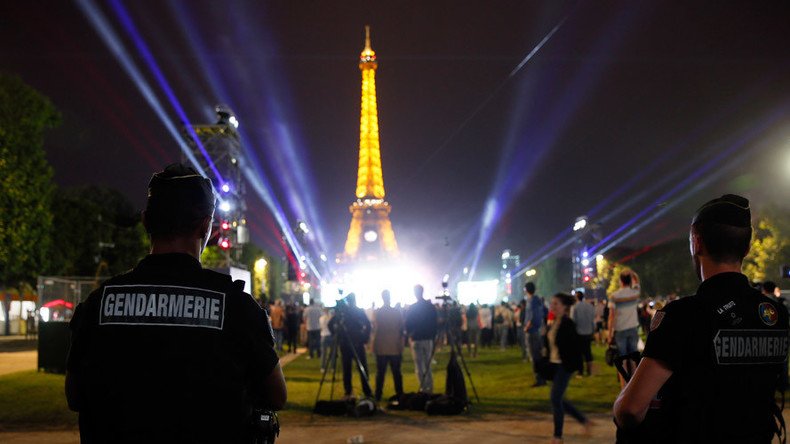'Why Europe needs Russia more than ever': Open Letter from European politicians

The following is an open letter, sent to RT by Rachida Dati, a French politician and Member of the European Parliament, and undersigned by 12 European politicians, that explains why EU sanctions against Russia should be lifted.
In October 2014, a few months after EU sanctions had been decreed against Russia, we already thought that missing the Russian partner was a mistake both on the political (on the Syrian conflict) and the economical level (for our agriculture), and we would pay it dearly.
Today, more than two years after the implementation of these sanctions in reaction to the situation in Ukraine, the warning signals are still red.
In July 2014, the European sanctions were extended to personalities including some of the Russian intelligence, preventing them from getting a visa and travel to the European Union. Aleksandr Bortnikov, head of the Federal Security Service and Mikhail Fradkov, director of foreign intelligence services, are both concerned by the sanctions.
Let us recall that the United States has also imposed sanctions, mainly economic ones, to Russia, but that they never went as far as jeopardizing their security cooperation with the heads of the intelligence service. So, why are we putting so much efforts in this, at the expense of our own security?
These sanctions impact us twice, both on the French and on the European levels, as demonstrated by the suspension of the Cooperation Council on security issues since the Ukrainian crisis. This Council was bringing together the Ministers of Foreign Affairs and Ministers of Defense from both French and Russian sides. These annual meetings have not taken place since October 2012 in Paris. And even if interactions do continue, lifting sanctions would allow full-scale exchanges.
Practically, this means that the heads of Russian intelligence would be able to get visas to the European Union so as to be able to directly meet and interact with their counterparts. In this field, trust is fundamental and visa bans clearly damage high-level cooperation and dialogue, as we need them to confront the threat we are facing.
How can we explain that these sanctions are in our own interest, the interest of the Europeans, when one knows the impact and possible consequences of breaking or weakening the exchange of information between two countries? The attacks in Paris and Brussels sadly reminded us that this cooperation is far from being optimal even within the EU. Russian citizens themselves have been hit hard by terrorism. If we continue to weaken our cooperation with Russia in this field, we are participating to put our citizens in danger.
Russia, thanks its positions in Syria, has access to valuable information on ISIS, which we would be wrong to turn away from, as the enemy we face is multifaceted and ever-evolving. If it is not thanks to passion, let it be thanks to reason that we cooperate with the Russian State, in order to exchange critical information on the positions and intentions of ISIS.
Then, we must learn to act responsibly, in a concrete way and be done with ideals that do not satisfy anyone. This realpolitik is no longer a choice, it is a duty imposed by the world around us. We may not agree on everything, we can sanction where it hurts, but there are goals and interests that require that we go beyond the desire to punish.
Take the example of Israel. Benjamin Netanyahu’s government has decided to strengthen its ties with Russia, to enhance its national security, even though Moscow is working closely with Iran, Israel’s most hostile and powerful enemy in the region. Without taking any country’s sides in the region, the Israeli decision shows that realpolitik - the Israelis’ security - goes beyond geopolitics. If Israel does it, why not us?
After two years of sanctions, we hence know the cost of division, and we are afraid it is immeasurably higher than that of cooperation with Russia. Besides, Russia also wants to help us. To those who doubt it, let us remind them that after the 13th November attacks, François Hollande and Vladimir Putin agreed to establish closer coordination between both countries’ armies on Syria.
European citizens would not understand if we deprive ourselves any longer of information that is able to ensure their safety and protect them from the horrors we have known Paris and Brussels recently. The geo-economic war taking place between Russia and the European Union must no longer stand in the fight against terrorism.
While the European Council must decide on 28th and 29th June on the renewal - or not - of sanctions against Russia, let us call together to revive security cooperation between those two major players of the international scene. More and more voices in Europe already call for a re-evaluation of sanctions and the lifting of sanctions applied to individuals, as showed by the French Senate’s vote on 8th June which called, with a wide majority, for a reassessment and even the lifting of the sanctions.
History will prove right those who find the political courage to make such a statement.
We, the undersigned:
Rachida DATI - PPE FRANCE (Parti Populaire Européan)
Françoise GROSSETETE - PPE FRANCE
Hermann WINKLER - PPE ALLEMAGNE
Alfred SANT - S&D MALTE (Socialistes & Démocrates)
Alain CADEC - PPE FRANCE
Franck PROUST - PPE FRANCE
Ivo VAJGL - ALDE SLOVENIE (Alliance des Libéraux et des Démocrates pour l'Europe)
Marc JOULAUD - PPE FRANCE
Stefano MAULLU - PPE ITALIE
Aldo PATRICIELLO - PPE ITALIE
Renaud MUSELIER - PPE FRANCE
Elisabetta GARDINI - PPE ITALIE
The statements, views and opinions expressed in this column are solely those of the author and do not necessarily represent those of RT.













